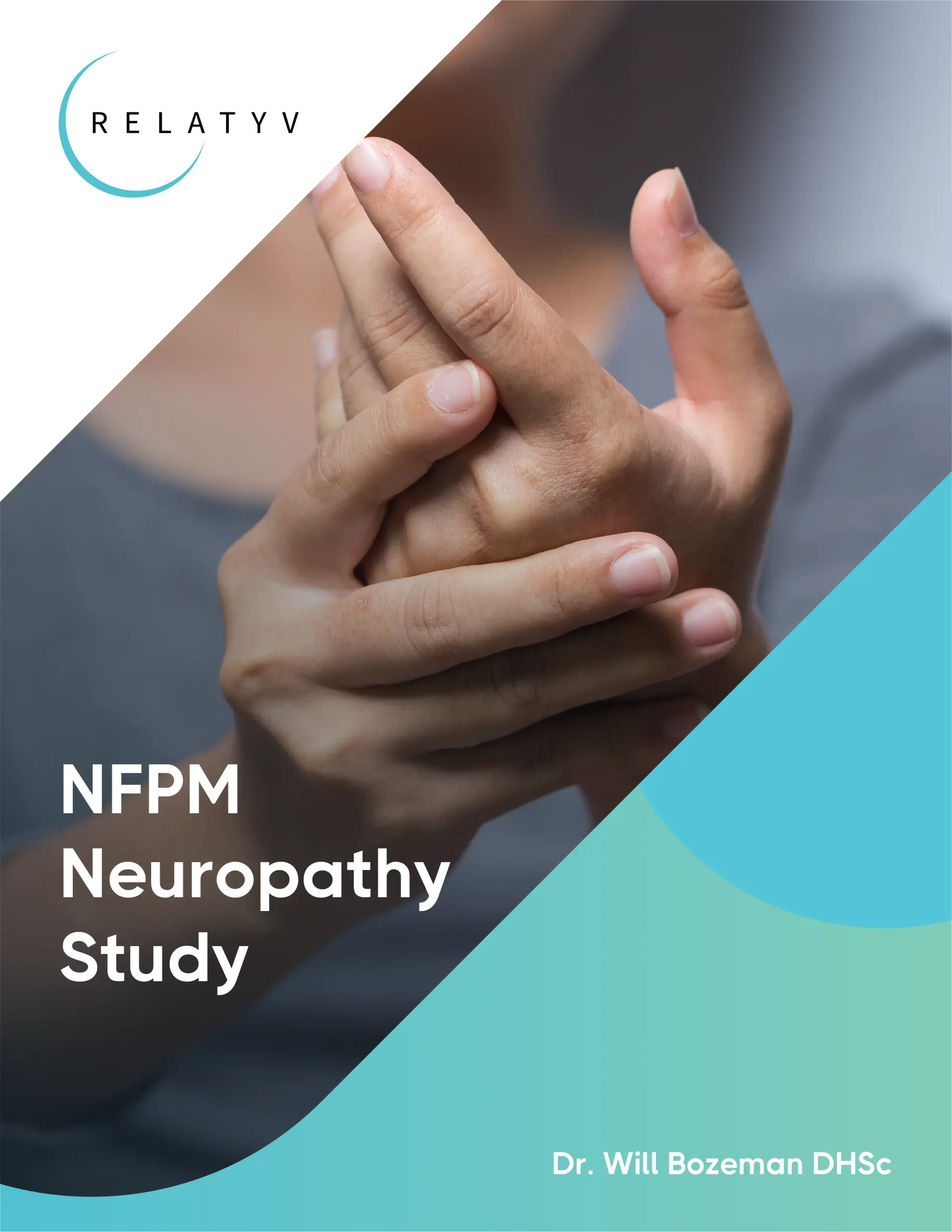Irritable bowel syndrome (IBS) can be a challenging and frustrating condition to live with. Although it does not usually lead to serious health problems, IBS can significantly impact daily activities and overall well-being. For example, it can make it difficult to go to work, attend social events, or travel because of the unpredictable nature of symptoms.
Fortunately, there are ways to treat IBS. We focus on treating the neurological factors that can contribute to IBS to provide long-term relief from chronic pain and inflammation.
What Is Irritable Bowel Syndrome?
IBS affects around 10-15% of adults worldwide and is more commonly found in women than men. IBS is a chronic condition that causes recurring abdominal discomfort and pain. It’s a common gastrointestinal disorder that affects the large intestine, also known as the colon.
Types Of Irritable Bowel Syndrome
There are three main types of IBS, each characterized by different symptoms. These types include:
IBS With Constipation (IBS-C)
As the name suggests, individuals with IBS-C experience constipation as their primary symptom. This means they have difficulty passing stool and may only have a bowel movement once or twice a week. This can cause abdominal pain and discomfort due to the trapped gas and stool in the intestines.
IBS With Diarrhea (IBS-D)
IBS-D is characterized by frequent episodes of diarrhea, along with abdominal pain and discomfort. Those with IBS-D may experience an urgent need to use the bathroom, leading to feelings of anxiety and embarrassment. Those with this type of IBS are often fearful of leaving their homes or traveling to unfamiliar places, especially if it involves eating out, as they never know when they may need to use the bathroom.
IBS With Mixed Bowel Habits (IBS-M)
IBS-M causes both constipation and diarrhea. This can make it difficult for individuals to predict when they will need to use the bathroom, leading to anxiety and stress in social situations.
Symptoms Of Irritable Bowel Syndrome
There are numerous symptoms associated with IBS, and they can vary in severity from person to person. The most common symptoms include:
Change In Appearance And Frequency Of Bowel Movements
One of the primary symptoms of IBS is a change in the appearance and frequency of bowel movements. This can range from constipation, where there are infrequent or difficult bowel movements, to diarrhea, where there is an urgent need to use the bathroom.
Tiredness, Nausea, And Weakness
Tiredness, nausea, and weakness are common symptoms experienced by individuals with IBS. This is because the condition can affect the body’s ability to absorb nutrients from food. As a result, it can lead to deficiencies and fatigue. The constant discomfort and pain can also cause tiredness and weakness.
Muscle Spasms In The Stomach
Muscle spasms in the stomach are a common symptom of IBS and can cause cramping, bloating, and discomfort. These spasms occur when the muscles in the intestines contract too strongly or for longer than necessary, resulting in pain and changes in bowel habits. They occur due to nerve and muscle dysfunction in the digestive tract.
Bloating And Swollen Stomach
Bloating and a swollen stomach are also common symptoms of IBS. This is because the condition can disrupt the natural balance of gut bacteria, leading to excess gas production and bloating, thereby making the stomach appear larger.
Excess Gas
Excess gas is another common symptom of IBS and can be uncomfortable and embarrassing for those who experience it. Excess gas is typically caused by the body’s inability to properly digest certain types of carbohydrates, leading to fermentation in the gut and gas production.
Heartburn
Heartburn is a symptom characterized by a burning sensation in the chest, throat, or neck. It occurs when stomach acid flows back into the esophagus and can be triggered by certain foods or stress. IBS can cause heartburn due to an excess of gas and bloating, which can put pressure on the esophageal sphincter, allowing stomach acid to flow back up.
Muscle Spasm In The Stomach
Experiencing a muscle cramp can be painful and uncomfortable. While cramps can occur in any area of the body, muscle spasms in the stomach are particularly common. In fact, almost everybody will experience muscle spasms of some kind throughout their lifetime....
Change In Appearance And Frequency Of Bowel Movements
Bowel movements are a normal part of our daily routine, and their frequency and appearance can vary from person to person....
Read More About Change In Appearance And Frequency Of Bowel Movements
Stomach Pain
In most cases, stomach pain is nothing more than a temporary, minor issue that resolves itself in a matter of days. However, new surveys have found that 40% of the US adult population - or 60-70 million Americans - struggle with chronic disorders of the...
Tiredness, Nausea, and Weakness
If you are struggling with chronic tiredness, weakness, and nausea, you may be battling limitations in all aspects of your everyday life - from reduced productivity at work to pain, discomfort, and low energy levels. And the situation may be made worse by the...
Excess Gas In The Stomach
Are you experiencing stomach bloating or excess gas? Discover the causes, symptoms, and effective remedies to manage gas pain with Neuragenex...
Stomach Is Swollen and Bloated
Abdominal bloating and swelling, also known as 'abdominal distention,' are two very common yet complex gastrointestinal complaints. Although these terms...
Causes And Risk Factors Of Irritable Bowel Syndrome
The exact cause of IBS is unknown, but it is believed to be a combination of factors that contribute to the development of the condition. These factors include:
Gut Motility Issues
Gut motility refers to the process of food and waste moving through the digestive tract. In individuals with IBS, there may be abnormal contractions, either too strong or too weak, affecting how fast food moves through the intestines.
Visceral Hypersensitivity
Visceral hypersensitivity is a condition where individuals experience heightened sensations of pain or discomfort in their internal organs. This can lead to the brain interpreting normal gut movements as painful, leading to increased sensitivity and symptoms of IBS.
Infection
In some cases, IBS can develop after you’ve experienced an infection in the digestive tract, such as gastroenteritis. This is known as post-infectious IBS and may be caused by inflammation or changes in gut bacteria.
Dietary Factors
Certain foods can trigger symptoms of IBS, such as dairy products, caffeine, and spicy or fatty foods. Dietary triggers may vary from person to person due to individual sensitivities, making it essential to track food intake and symptoms to identify triggers.
Stress And Psychological Factors
Certain psychological factors, such as depression and anxiety, can also contribute to the development of IBS. This is because the brain and gut are closely connected, and stress can affect digestive function and sensitivity in individuals with IBS.
Hormonal Changes
Fluctuations in hormones, such as during menstruation or menopause, may also play a role in the development of IBS. This is because hormones can affect gut motility and sensitivity. It’s one of the reasons that IBS tends to affect more women than men.
Genetics
While not fully understood, there may be a genetic component to IBS as it tends to run in families. Research is ongoing to determine specific genetic factors that may contribute to the development of the condition.
Diagnosing Irritable Bowel Syndrome
If you’re having symptoms of IBS, it’s essential to see a doctor for an accurate diagnosis. There is no specific test for IBS, and diagnosis is usually based on the following:
- Physical exam: A doctor will perform a physical examination as well as ask about your specific symptoms, medical history, and family history to rule out other potential causes of your symptoms. Checking for physical signs, such as bloating or tenderness in the abdomen, can also help confirm a diagnosis.
- Blood test: The doctor may do a blood test to look for certain underlying conditions that could be causing similar symptoms, such as celiac disease.
- Stool sample: The doctor may evaluate a stool sample to look for infections or other abnormalities in the digestive system, such as parasites or bacteria.
- X-ray: In some cases, a doctor may order an X-ray in addition to other imaging tests to rule out any structural issues in the digestive tract.
- Colonoscopy: A colonoscopy may be recommended if you have symptoms such as rectal bleeding or weight loss, as it allows the doctor to examine the entire colon and rule out any serious conditions.
Conventional Treatment Options
Once you’ve been officially diagnosed with IBS, your doctor may recommend the following treatment options:
Low-FODMAP Diet
A low-FODMAP diet involves avoiding certain types of carbohydrates that are known to trigger symptoms in individuals with IBS. These include fermentable sugars found in foods such as wheat, onions, and legumes.
Medications
A traditional doctor will often prescribe various types of medications to help manage your symptoms. These include:
- Fiber supplements: Fiber can help regulate bowel movements and reduce constipation. However, to avoid making symptoms worse, you should increase your fiber intake gradually and drink plenty of water.
- Anti-diarrheal medications: If diarrhea is a predominant symptom, you may be prescribed certain medications to help slow down gut motility. However, there are some potential side effects, such as constipation and bloating.
- Antispasmodic agents: These medications can help relieve abdominal pain and cramping by relaxing the gut muscles. However, these agents can cause a wide range of side effects, including headaches, dizziness, fatigue, constipation, dyspepsia, and dry mouth, to name a few.
- Antidepressant medications: Low doses of certain antidepressants (such as tricyclic antidepressants) have been shown to help relieve symptoms of IBS. This is because they can help regulate gut motility and pain perception. The drawback is that they can cause various side effects, such as dry mouth, drowsiness, and sexual dysfunction.
- IBS medication: There are some IBS-specific medications, such as Alosetron and Lubiprostone, that can help manage symptoms in individuals with more severe or refractory cases. However, these medications may also have serious side effects and will require close monitoring by a doctor.
Alternative Therapies
There are a few alternative therapies available that could help with IBS symptoms as well. However, there is limited scientific evidence to support their effectiveness, and they may not work for everyone. Some commonly used alternative therapies include:
- Acupuncture: Acupuncture involves the insertion of thin needles into specific points throughout the body. This aims to help relieve pain and other symptoms.
- Herbal remedies: Certain herbs, such as peppermint oil and chamomile, may help alleviate symptoms of IBS. However, you should consult with a healthcare professional before you try any herbal remedies. This is because they can interact with medications and have potential side effects.
Outlook For Individuals With Irritable Bowel Syndrome (IBS)
While there is currently no cure for IBS, the symptoms can be managed with various lifestyle changes and treatments. However, it’s important to note that IBS is a chronic condition. This means that it may require ongoing management to control symptoms.
Individuals with IBS may experience periods of remission, where symptoms are mild or non-existent, followed by flare-ups where symptoms worsen. These fluctuations can significantly impact an individual’s daily life and overall well-being. It’s essential to work closely with a healthcare team to find the best treatment plan for managing your symptoms.
Potential Consequences If Left Untreated
While IBS is not usually a life-threatening condition, it can significantly impact your quality of life if left untreated. In very rare cases, it may increase the risk of developing certain life-threatening conditions. Some potential consequences of untreated IBS include:
- Chronic pain and discomfort: The most common symptom of IBS is abdominal pain and discomfort. If left untreated, these IBS symptoms can become chronic and affect daily activities.
- Nutritional deficiencies: Depending on the type of IBS, it can cause constipation or diarrhea. Both can affect nutrient absorption and potentially cause deficiencies if left untreated.
- Mental health issues: Living with a chronic condition like IBS can take a toll on a person’s mental health. Untreated symptoms can lead to anxiety, depression, and other mental health issues.
- Difficulty with work and social activities: IBS symptoms can be unpredictable and debilitating, making it challenging to maintain a regular work schedule or engage in social activities.
- Increased risk of other digestive disorders: Research has shown that if IBS is left untreated, individuals may have an increased risk of developing other digestive disorders, such as inflammatory bowel disease (IBD) and colorectal cancer.
How Neurofunctional Pain Management Manages Pain Associated With Irritable Bowel Syndrome
We utilize a protocol that consists of a Neurofunctional Pain Management (NFPM) approach to help relieve chronic pain and inflammation. This unique whole-person approach involves addressing the underlying neurological causes of the pain and providing personalized treatment plans. It is a safe and effective pain management solution for a wide variety of conditions that cause chronic pain, including IBS.
All of the treatment modalities are drug-free, non-surgical, non-invasive, and non-chiropractic. They are particularly effective at treating IBS due to their ability to reduce inflammation using a combination of electroanalgesia and IV therapy. We can also help with dietary management through personalized nutrition plans and supplementation. The following is a more in-depth overview of these treatment modalities:
Electroanalgesia
Electroanalgesia is a pain management technique that uses high-pulse electrical current to ease pain, boost blood circulation, improve mobility, and induce...
IV Therapy
IV nutritional therapy, or intravenous therapy, involves administering vital nutrients directly to the bloodstream through an IV. This type of treatment bypasses the digestive system, allowing for maximum absorption and utilization of nutrients by the...
Lifestyle Counseling
Lifestyle counseling is an approach to managing chronic pain that involves identifying, assessing, and modifying lifestyle factors contributing to an individual's pain. For example, lifestyle factors such as nutrition, physical activity, stress, sleep quality...
Read More About Irritable Bowel Syndrome Lifestyle Counseling
Relieve Irritable Bowel Syndrome Pain
IBS is a chronic condition that can have an enormous impact on your quality of life if left untreated. However, with proper management, you can find relief from your IBS symptoms and improve your overall well-being.
We offer personalized pain management solutions for individuals with IBS through the unique NFPM we use. Contact us today to learn more and start your journey towards a pain-free life.
Take control of your IBS pain and symptoms and start living a more comfortable, symptom-free life.



